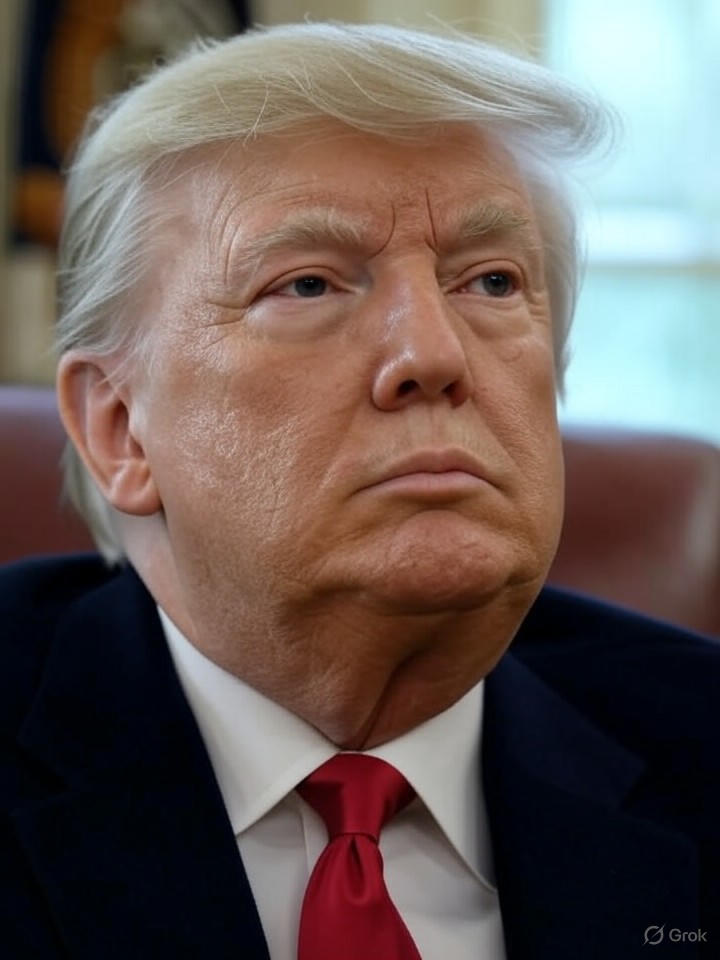The global economic landscape is on the brink of a significant transformation as President Donald Trump’s self-imposed August 1, 2025, deadline for reciprocal tariffs rapidly approaches. This firm deadline, with no further extensions granted, signals a decisive shift in international commerce, forcing nations worldwide to confront new realities in their trade relationships with the United States. White House statements have underscored Trump’s unwavering commitment to tariffs as a primary instrument for rebalancing perceived trade disparities, a strategy he has long championed.
As the clock ticks down, markets are bracing for considerable economic volatility and potential disruptions to intricate global supply chains. Countries like India and Brazil, which have yet to secure comprehensive trade agreements, are facing the immediate imposition of steep levies. This aggressive trade policy aims to compel partners into more “fair” agreements, but simultaneously carries the inherent risk of escalating into a broader, more damaging global trade war.
The specific tariff rates are designed to reflect existing disparities in duties on American goods, with significant implications for affected nations. India, for instance, is set to face a substantial 25% levy in addition to penalties, a move that could profoundly impact its burgeoning tech and pharmaceutical sectors. Other nations, including Vietnam and the Philippines, are also facing considerable tariffs of 20% and 19% respectively, prompting concerns about the cost of imported goods for consumers globally.
Amidst this impending deadline, some nations have successfully navigated the high-stakes diplomacy to secure more favorable terms. South Korea stands out, having finalized a deal just hours before the cutoff, securing a 15% tariff rate tied to broader trade concessions. Similarly, Japan managed to lock in a 15% rate through last-minute negotiations, demonstrating the critical importance of proactive engagement in mitigating the economic impact of these new trade policies.
Conversely, several key players have failed to reach accords, leaving them exposed to immediate economic repercussions. Brazil and Bangladesh are among those remaining on the outside, with potential tariff rates soaring to 50% or higher, threatening their vital agricultural and textile export industries. The failure to secure agreements for these nations underscores the challenges and pressures of the current global trade environment, forcing businesses to re-evaluate their international relations and operational strategies.
The anticipation of these tariffs has already sent ripples through financial markets, with U.S. stocks experiencing dips as investors assess the potential fallout. Industry analysts are particularly concerned about the extensive supply chain impact, especially for multinational corporations heavily reliant on imports from affected nations. Companies like Apple and Nike, with significant manufacturing operations in Southeast Asia, are reportedly accelerating efforts to diversify their production, seeking alternatives in countries that have secured deals or even considering reshoring operations to mitigate rising costs.
Beyond the immediate market volatility, experts are issuing stark warnings about the likelihood of retaliatory measures, which could indeed ignite a full-blown global trade war. Nations facing punitive duties, such as Canada with its 35% steel tariffs, have already signaled their intent to implement countermeasures. This tit-for-tat dynamic risks further straining critical international supply chains and potentially driving up consumer prices, ultimately slowing global economic growth in a delicate period.
For industry leaders and policymakers, the approaching August 1 deadline represents a critical pivot point in international trade policy. While countries with signed pacts gain a degree of predictability, holdouts face significant uncertainty and the potential for redefined international alliances. Corporate strategists are actively advising clients to model various scenarios, emphasizing the need to monitor post-deadline adjustments as President Trump has historically shown a willingness to tweak rates mid-negotiation, adding another layer of complexity to the evolving landscape of global trade.






Leave a Reply